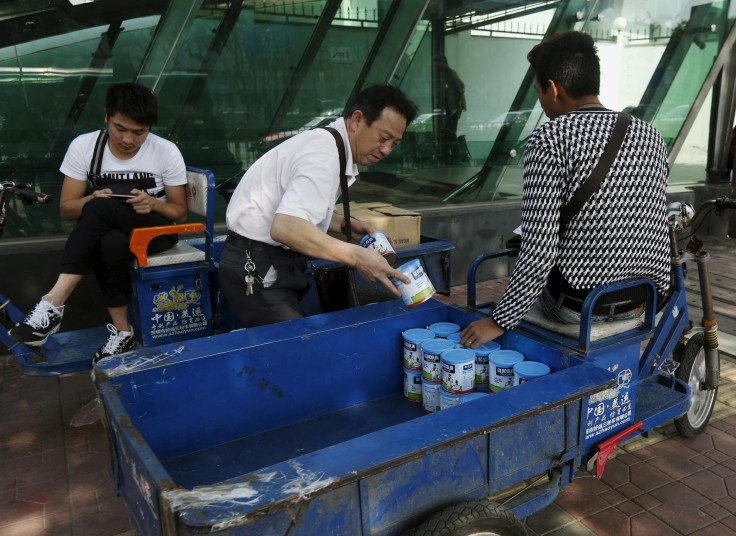China Reduces Tariffs On Imported Consumer Goods To Promote Domestic Demand

SHANGHAI -- The Chinese government is to reduce import tariffs on popular consumer goods, and increase imports of such goods, as part of its efforts to boost domestic consumption.
China’s State Council, or cabinet, announced after a meeting on Tuesday that it would begin a trial reduction of tariffs on certain types of popular goods by June. It also announced an expansion of the categories of imports benefiting from tax reductions.
The statement said full details would follow, but the State Council did specify that it would also adjust its consumption tax policy on goods such as cosmetics -- which face import tariffs of up to 30 percent -- and clothing. It also pledged to set up more duty-free shops at ports of entry, and to facilitate imports through e-commerce channels, by improving inspection and quarantine policies, and removing “unreasonable charges” on such imports.
The Chinese government said the measures were designed to stabilize economic growth by boosting domestic demand, and would also help to ensure employment and improve people's lives, according to the official Xinhua News Agency.
The move may also help reduce China’s trade surplus. But it is boosting domestic consumption that has long been seen by analysts as key to balancing China’s economy over the long term. Retail sales in China were 7.1 trillion yuan ($1.15 trillion) in the first quarter of 2015, a rise of 10.6 percent over last year. However, consumption still accounts for a significantly smaller share of GDP in China than in many other economies, with the high cost of housing, and concerns about welfare costs and education fees seen to have prevented it from expanding faster.
The slowdown in export growth to just 7 percent in the first quarter of the year has added to a sense of urgency surrounding the issue. Recent reports of Chinese tourists returning from Japan with purchases of heated toilet seats have focused attention on the issue of import tariffs, which, along with quality concerns, are seen as driving many Chinese shoppers to make purchases abroad.
An official at the Ministry of Commerce said the cuts in tariffs could push retail sales up by 0.5 to 1 percentage point, according to the South China Morning Post.
The Chinese government may also have been motivated by the controversy over the recent wave of Chinese tourists buying everyday goods in Hong Kong, particularly cosmetics and baby necessities, including infant formula, which is also subject to high import tariffs in China. Protests in Hong Kong against the impact of the shoppers on the local social and economic order recently forced the Chinese government to restrict trips to Hong Kong by people from the nearby city of Shenzhen.
There have also been plans to set up dedicated malls for mainland shoppers just inside the Hong Kong border, to reduce the disruption. However, if the State Council’s plan to build more duty-free shops at ports of entry were implemented in Shenzhen this could render such malls less necessary.
The Chinese government has already experimented with malls selling imported products at reduced prices in areas such as the new Free Trade Zone in Shanghai, and in cities such as the port of Ningbo and the commodities trading center of Yiwu, both in Zhejiang province. At the latter, domestic tourists are bused in to buy imported goods including Spanish wine and Southeast Asian snacks.
The State Council also suggested that allowing cheaper imports would “boost the domestic consumer goods industry toward the medium and high-end level,” Xinhua reported, by forcing domestic manufacturers to respond to increased foreign competition. The announcement comes amid a series of measures by the Chinese government to make its economy more open and more internationally competitive, as China comes to terms with both slowing export demand, and rising labor costs in its domestic manufacturing industry.
China previously eased tariffs on more than 700 kinds of goods at the beginning of 2014. It has also recently signed free-trade agreements with South Korea, Australia and New Zealand, though it will take some time for tariffs to be removed on various categories of imports from these countries.
Earlier this month the government also promised to reduce tariffs on equipment needed for water purification, after vowing to clean up the nation’s water supply.
© Copyright IBTimes 2024. All rights reserved.












